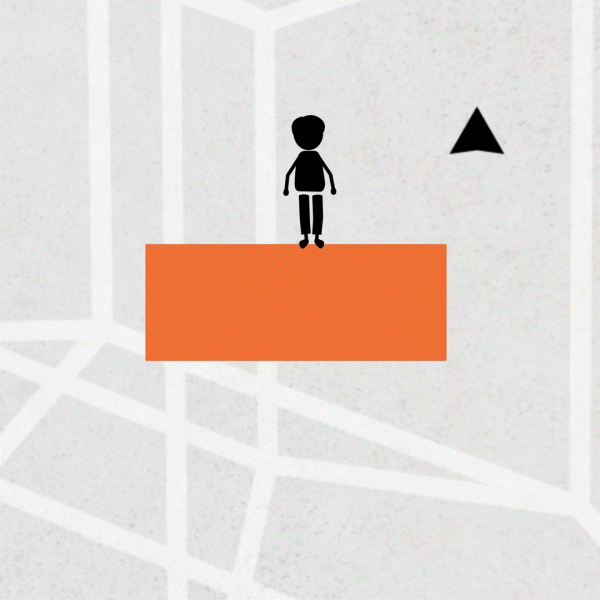
SAMPLE
Chapter 2 - Brandon - Tuesday's child
Brandon’s parents must work hard.
They work hard at navigating the government support they are entitled to, at being frugal and at being available at all the times they are needed.
They work hard at ensuring that their situation is never obvious to other parents and children. It’s called ‘keeping up appearances’, and it often comes close to living a lie.
Not being late, being friendly, making sure the children always look presentable at school. Not mentioning money troubles at all, even with people they know very well. Often mentioning Brandon’s dad’s work, even if the work is itinerant, and even if his doing it more frequently would make them worse off.
There are things they cannot hide. The children’s school has a system whereby children who qualify for free school meals don’t have to pay for certain things, like the coach for a school trip or a ticket for the public performance of the school play. Unfortunately, other children quickly work out which children get free school meals. For a start, they may be some of the few who never bring in their own sandwiches, or whose jumpers are very faded.
Then there are issues about friends and family. Going to the pub is out. Meeting to eat anywhere but the cheapest of places is also out. If they’ve ever gone out to eat, it has had to be somewhere that takes supermarket vouchers, but that was when they first had children. Now that they have three, even that is off the menu.
Christmas is hard. Oddly, the worst part was always Christmas jumper day at school for the older two children, because you have to have one to take part. The solution used to be to have a stomach bug. It was a blessing when the school cancelled dressing-up day. They said it was because the school could not have a jumper day for every religion; although it was a good excuse, it wasn’t the real reason.
Presents are tricky. It’s fine when the grandparents buy the kids presents; nothing is expected in return. But if one of their uncles or aunts gets them a present at Christmas and they haven’t done the same for the cousins, what then? That has all slowly sorted itself out. Any presents just become token and cheap. But what if their children are invited to another child’s birthday party, where a present has to be taken? That’s a problem, and it happens often.
Hopefully any gift their children bring to a birthday won’t be unwrapped at the party. Of course, other parents would know that a bar of chocolate is not a real present; neither is something that has been given to the family and then passed on, in the hope that the birthday child won’t notice or mind that it’s not new. As the children have got older, all this has become harder. More often now, they say they aren’t free to go to the party. But when you can’t afford to go to the cinema, or out to eat, or to do very much at all out of the house, you rarely have a non-fictional prior commitment.
Brandon’s parents can tell that sometimes they are being judged. There are no families of four children at their school that they know of. In the 1950s and 1960s, three or more children used to be the norm; but having three is relatively rare nowadays, and can be seen as profligate. For families of three or more children, three-quarters of all such children are in the poorest two-fifths of the population, and a mere 7 per cent are in the best-off fifth.30 When parents cluster in the playground at pick-up time, Brandon’s mum sometimes brings along the old, battered pushchair. It was for Brandon when he was little, but it can also take school bags and coats; and in some funny way is a kind of talisman to hold onto, to hide behind.
Brandon’s mum mingles with those who are most like her, even though she is on first-name terms with most of the other mums and the occasional dad. Brandon’s dad doesn’t often do the drop-off or pick-up, as he doesn’t want people to know that he is often not working. He doesn’t realise that post-pandemic there are many more dads on the school pick-up.
Brandon’s dad wonders if his wife will ever agree to being assessed for a disability. Even the thought of it frightens her too much, so he has stopped raising it. Anyway, as she can walk the children to and from school, and chat, she thinks she is hardly disabled, physically at least. It’s the mental side of things.
One day, while waiting for the teacher to let Brandon’s brother and sister out to the playground, the mums had been talking about who had it harder, men or women. Some were saying that in future the girls might have it easier than they did now. Almost all the teachers in the school were women. Brandon’s mum thought it hardly made any difference. What mattered was money. She was well aware of who drove to pick up their kids from school, who walked, and who had to walk.
-
Notes for this sample
Open or Close27. CPAG (2023) ‘“There is only so much we can do”—school staff in England’, Child Poverty Action Group, 19 September, last accessed 9 April 2024, https://cpag.org.uk/news/there-only-so-much-we-cando-school-staff-england
28. Martin George (2019) ‘Exclusive: Data reveals poor pupils’ Xmas jumper shame: “Poignant” spike in number of disadvantaged pupils absent on Christmas Jumper Day leads schools to cancel event’, Times Educational Supplement, 31 May, https://www.tes.com/magazine/archive/exclusive-data-reveals-poor-pupils-xmas-jumper-shame
29. An example: ‘Hi All, I have a quick question—not sure if it’s really an AIBU one or more of a question. For context I have no children and no immediate plans for them (I do ideally want them one day). In the last year my friends have really stepped up their baby game and I now have 4 close friends with kids (6 kids in total). My mum had me quite a bit later than her friends and had always given presents to her friends’ kids so I used to get money/presents from her friends. I want to know what most people would expect. My instinct is that I should give presents to the 6 kids but I am conscious that this number will likely grow. I want things to treat them all fairly (including any future ones). Also, what would be considered to be a reasonable gift. My first thought is £20 each (maybe £10 in money and a small toy/piece of clothing) but conscious that would amount to £120 for Christmas (and the same for birthdays!). I am lucky in that the money element is not massively problematic at the moment and I could afford to do it but consciousthat the babies are just going to keep racking up! If it was 20 kids (not out of the question) then that is £800 a year without even consideringif I was made Godmother/it was big birthday etc! What would you advise/what do you do with your kids?’ 83 per cent of respondents to this question thought the sender was being unreasonable—implying that they should budget higher. Source: whatdoyouthink22/anonymous (2012) ‘Presents for friends’ kids’ (51 replies), Mumsnet, 18 November, last accessed 10 April 2024, https://www.mumsnet.com/talk/am_i_being_unreasonable/4680083-presents-for-friends-kids
30. DWP (2021) ‘National Statistics: Households below average income: For financial years ending 1995 to 2020’, Department for Work and Pensions, 25 March, https://www.gov.uk/government/statistics/households-below-average-income-for-financial-years-ending-1995-to-2020, and HBAI 2019/2020: table 4.1db (AHC): Quintile distribution of income for children by various family and household characteristics, United Kingdom.
31. Brandon’s mum walks the children to school, as so many parents do. You might be forgiven for thinking that descriptions such as this are excessive fictionalisation, an ‘anthropologisation’ of the working class. If you do, you may be more likely to have not done the school walk yourself. It is far more common than a ‘school run’ for primary-age children. Dropping off and picking up times are points at which we observe each other intently, because we—those of us with children of this age—have so much in common in terms of having children of the same ages. If someone has a new buggy, and we think they are poor, we may think they are parading it for status; but it is hard to know how others think simply by talking to them, because we have learnt to hide our thoughts. How we think is a field of study that is still greatly disputed in terms of our views on what we are (phylogenetically) in terms of our interactions and our diversification as a group, just as psychological sciences are places of dispute over the right approach to take on matters such as this. See Vladimer Lado Gamsakhurdia (2020) ‘Systematic semiotic organisation and anthropologisation of the science of soul—towards cultural psychology’, Integrative Psychological and Behavioral Science, 54, 3, pp. 625–38, doi: 10.1007/s12124-020-09541-4, https://pubmed.ncbi.nlm.nih.gov/32458229/
32. It was not because he was a part-time accounting clerk temp that he was not knowledgeable of how the pandemic had changed working patterns. It was simply because he didn’t often do the walk to school.
33. DWP (2021) ‘National statistics: Households below average income: For financial years ending 1995 to 2020’, Department for Work and Pensions, 25 March, https://www.gov.uk/government/statistics/households-below-average-income-for-financial-years-ending-1995-to-2020, and HBAI 2019/2020: table 4.1db (AHC): Quintile distribution of income for children by various family and household characteristics, United Kingdom




